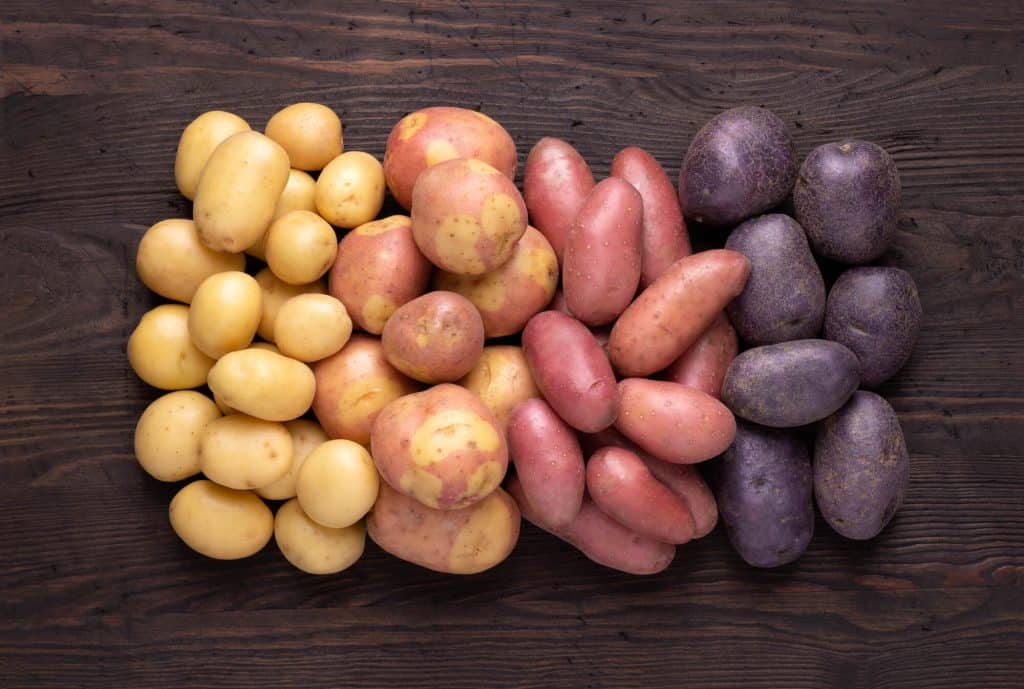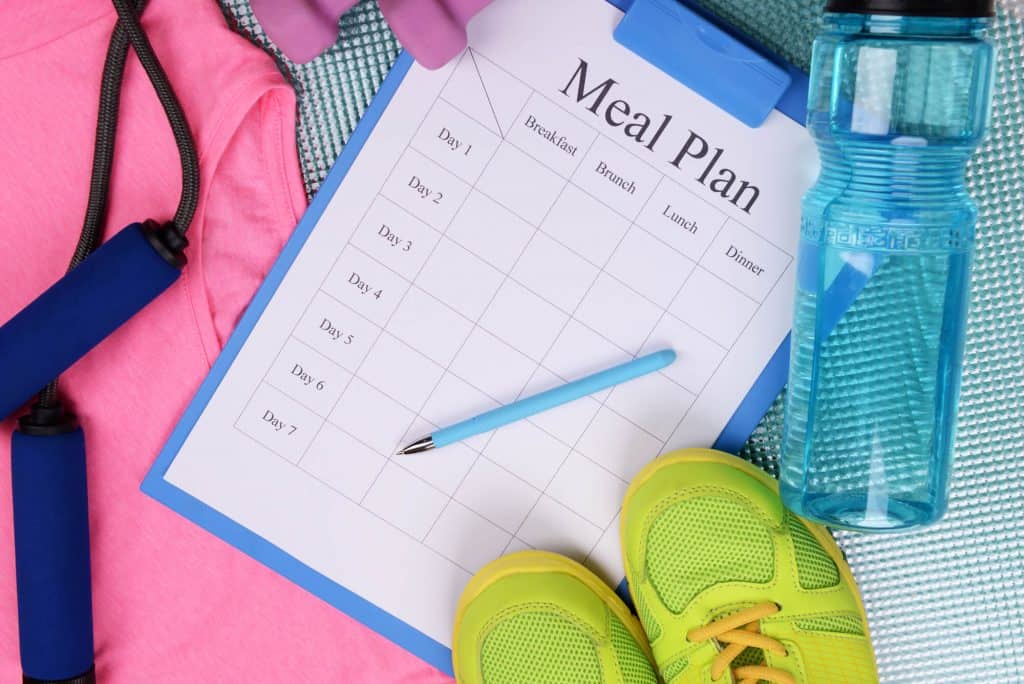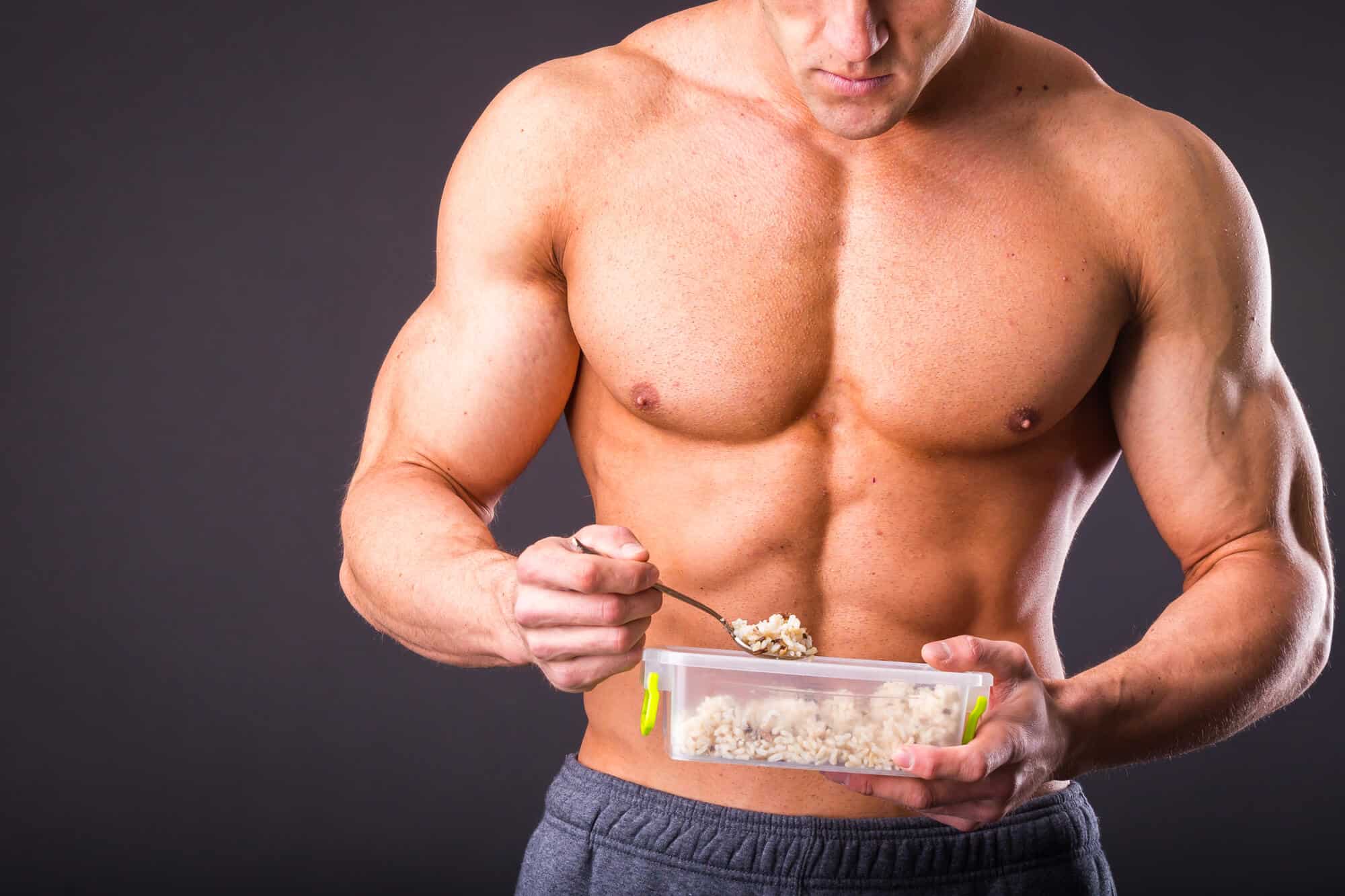Preparing for a marathon requires a lot of training. However, putting in the miles isn’t enough to achieve your goals, as you also need a proper nutrition plan to help you make the most out of your training, and that is what this guide is all about!
If you want to know what to eat before marathon and how to prepare your dietary plan, you’re in for a treat!
In today’s guide, we’ll walk you through everything you need to know about pre-marathon nutrition, including what to eat and avoid as well as essential tips to maximize your gains. Let’s dive right in!
What to Eat Before Marathon: When Should You Start Planning Your Meals
The earlier that you start planning your meals before a marathon, the better. However, planning too early can also have its drawbacks.
For instance, many athletes lose their sense of commitment when they start too early. Yet, the closer you get to race day, the more critical your meal planning should get.
Also, you’re going to consume a lot of carbohydrates during the last few days leading up to the race.
This is great for storing up glycogen for such an energy-taxing event but isn’t too healthy as a general meal and you can end up gaining a lot of weight if you continue like that for a long time.
For that reason, the best time to start planning your meals before a marathon is around 5 to 7 days before race day. This way, you’ll have enough time to load up on essential nutrients without worrying about the adverse reactions of such a strict diet.
What to Eat Before Marathon?

While training for a marathon, you need to ramp up your carbohydrate intake because it’s an excellent source of easy energy for the body (glycogen). This process is known as “carb loading”, and it’s highly effective before marathons.
Ideally, you should focus on a low fiber, high carb foods, such as:
- Pasta
- Rice
- Toast
- Bagel
- starchy vegetables, such as potatoes
In addition to carbs, you also need to consume some high-quality protein, which is found in lean meat, poultry, fish, tofu, and eggs.
As for fats, try to consume items that are rich in healthy unsaturated fats like omega 3,6,9. This includes nuts and fish.
Alternatively, you should avoid dairy products as well as deep fried foods because they can cause stomach cramps due to their saturated fat content.
Should I Use Pre-workouts Before a Marathon?
There are plenty of studies out there that show the benefits of consuming pre-workouts before vigorous exercise sessions, which include participating or competing in a marathon.
Among the benefits found in many of these studies are increased endurance and reduction of effort perception while keeping your focus levels very high.
Some pre-workouts also provide the body with essential nutrients to encourage burning fats during exercise, which generates more energy as you need it.
On the other hand, there are some studies that didn’t find significant improvements in using pre-workouts before exercise.
For that reason, the choice here mainly depends on how pre-workouts work for you. If they boost up your performance and help you manage fatigue, you should definitely include them in your training routine.
However, if you don’t see any improvements after using them or you’ve never tried them before, it’s wiser to avoid trying them out during this critical week.
How to Avoid Diarrhea and Other Gut Problems Before a Marathon
There are two methods that you can follow to limit stomach issues before a marathon, you can try any one of them or both, depending on your situation.
First, you can take the natural route of making dietary changes where you omit all the excessive fibers and gas-producing items off your food list and stick to high-carb foods that aren’t rich in fibers.
The other route is to seek the help of a doctor to prescribe an anti-diarrheal agent to help you finish the race without worrying about your bowel movement.
Can I Drink Coffee on Marathon Morning?
If you already consume caffeine on a daily basis and you get no adverse reactions from drinking coffee, you can drink coffee while training for a marathon.
Not only that, but you can also have a cup of coffee on the morning of the marathon to boost your energy and focus levels. Additionally, caffeine has some antidiarrheal effect that is ideal for those who suffer from mild runner’s diarrhea.
A Sample Marathon Morning Meal Plan

One of the best ways to sum up the information above is by having a real-life example. To help you with that, here’s a sample plan of what a typical marathon morning meal should be.
3 to 4 Hours Before the Race
Ideally, you should wake up around 3 to 4 hours before the start of the race. The first meal before the race is the largest and should mostly contain carbs in addition to fewer proteins and fats.
This way, you’ll be able to replenish your glycogen deposits to maximize your instant energy expenditure for the race start. This meal should include:
- 1 to 2 grams of carbs for every pound of body weight
- 1/4 grams of protein and fats for every pound of body weight
A good example here is to enjoy a whole banana in addition to a small bowl of oatmeal and peanut butter.
You can also replace the oatmeal with rice or a bagel or a granola bar with toast. During that time, you should consume around 20 fl oz of fluids, mainly water.
Try to avoid stuffing yourself with food and stick to around 100 grams of carbs and proteins to avoid stomach cramps during the race.
1 Hour Before the Race
As the race start closing in, your intake of fluids and food should decrease. This helps in minimizing gut issues prior to the race, such as runner’s diarrhea. During that time, you should consume simple small meals, such as:
- Dried apricots
- A single banana
- Energy bar
10 Minutes Before the Race
Avoid stuffing yourself immediately before the race because it can slow you down. Instead, you can only consume a quick energy gel if you feel the need to.
If you have a sensitive stomach, you can also take any medication that helps in stabilizing your digestion process to prevent cramps and/or diarrhea.
Important Tips on Proper Nutrition Before a Marathon
Now that you know more about nutrition through the preparation for a marathon, here are some essential tips that will help you make the most out of your diet to achieve your goals:
1. Never Try New Food Before Marathons
This is one of the oldest rules that all runners follow while preparing for marathons, half-marathons, or even small races like 5Ks.
During the strict preparatory diet leading up to the marathon day, avoid trying out new foods that you aren’t familiar with or aren’t sure about their effect on your body.
Some runners even come across secret ingredients or products that promise them exceptional performance during the race. However, you should steer clear and avoid all these foods.
Our bodies react to food differently from other individuals, and even regular food items can end up causing several gut troubles that you don’t want.
In order to run comfortably, make sure that you stick to the food items that you’ve tried out and make sure that they won’t hurt you, especially if you have a naturally sensitive stomach.
If you’re extremely tempted to try out some food, at least don’t eat it in the last 2 days before race day.
2. Hydration is Equally Important

In addition to food, you should also make sure that you drink plenty of fluids throughout the day. In fact, loss of hydration can have a detrimental effect on your performance.
After vigorous exercise, your body starts to lose its water vapor through excessive lung expiration as well as sweat. When that happens, the water will also contain essential electrolytes that you need to boost your performance, such as sodium and potassium.
This puts more pressure on your cardiovascular system, which limits the amount of oxygen that reaches your muscle tissue, limiting your performance as a whole.
Ideally, an athlete training for a marathon can lose anywhere between 0.2 to 2.5 liters of sweat an hour, depending on the nature of their body, so you should make sure that you drink more water throughout the day to replenish the lost fluids.
3. Use Dietary Supplements with Food to Meet All Your Nutritional Needs
While carbs are extremely essential for the health of your body, loading up on carbs alone isn’t enough to keep your performance at the top level.
In addition to carbs, you’ll also need to make sure that you’re getting your body’s needs of essential macronutrients, including proteins and healthy fats.
Moreover, you might want to supplement on essential vitamins and minerals that you don’t get to consume directly in food, since you’ll be focusing mainly on carbohydrate-rich foods.
4. Consider Consulting a Dietitian If You Need to
If you’re unsure about the kind of diet you want to follow, or you’re looking for professional advice, you should definitely seek a dietitian that specializes in preparation for tournaments and competitions.
Dietitians will set a proper plan based on your nutritional needs and fitness level, so you won’t have to
5. Load Up on Nitrate Rich Foods
Many inorganic nitrate compounds are extremely helpful when it comes to short training programs like preparation for marathons. This includes foods like arugula, beets, kale, spinach, and chards.
In fact, according to a 2019 study, the group that consumed nitrate-rich foods showed significant improvement in performance during the first week, making it ideal for marathon preparations.
This is because nitrate is a natural vasodilator that allows the blood vessels to dilate, and therefore, deliver more nutrients and oxygen to the muscle tissue.
6. Eat Properly After a Marathon
As previously established, marathon preparation includes eating large quantities of carbohydrates when compared to fats and proteins. However, these percentages aren’t healthy for long-term use.
Within an hour after the finish line, make sure that you consume a meal with all essential macronutrients that contain a majority of lean protein as well as healthy fats from nuts and avocado to replenish your body reserves.
The Bottom Line On What to Eat Before Marathon
This marks the end of today’s guide that shows you what to eat before marathon and how to prepare yourself from a dietary point of view for such an event.
As you can see, it’s important that you plan out your meals in the final weeks leading up to your goal marathon in order to figure out what works for you and what doesn’t.
Make sure that you load up on carbs in the final days before a marathon in order to maintain enough energy during race day.

